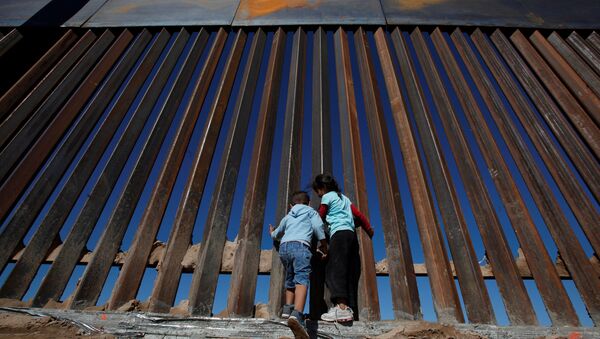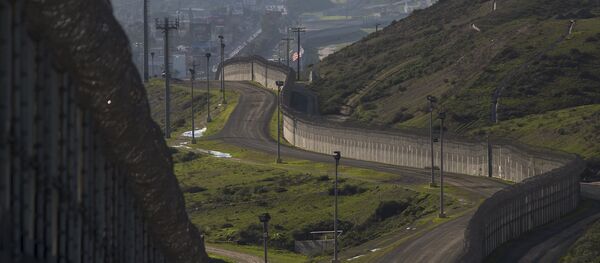Sputnik discussed Trump's offer with David Schultz, a political science professor at Hamline University.
David Schultz: He's chosen this tactic because it's a tactic that would still get him a wall, and that's something that he very much wants. But on the other hand, the offer that he is making to the Democrats is an offer that has already been previously turned down by the Democrats; and also it's an offer that at one point was brokered with some Senate Republicans that Trump had rejected.
READ MORE: Trump's Wall: US 'Extreme Left' Doesn't Want Dems to 'Compromise With the Devil'
So I think that the Democrats are perceiving this as an offer that they've already turned down and they see themselves in a stronger bargaining position now, than they were, let's say, a few weeks ago. Translating it another way, I think that the Democrats see this as a non-genuine offer that really didn't move the negotiations forward.
Sputnik: What chances does Mr. Trump's solution to overcome the shutdown stand in the Senate?
But at this point, I just don't see anything that's going to be brought up to a vote by Mitch McConnell. And it's also not clear at this point if we are any closer to a real ending of the government shutdown. If anything, the Democrats, headed by speaker of the House Nancy Pelosi, and Donald Trump are as far apart as they were when the Democrats took control of the House back in early January.
It's also important to remember that this is a dispute that goes back to even when Donald Trump had Republican control of both houses of Congress. There were some people who were saying that if he truly wanted a wall, [then] he could have got this in the first two years of his administration; and now this is less about him really wanting a wall, than this is about political manoeuvring with his base.
Sputnik: Mr. Trump said that he would not like to resort to the national emergency option, but rather try to reach a deal first. If his proposals are rejected, how high are the chances that he will go through with it?
David Schultz: I don't think it's that high in terms of going the national emergency route. And the reason why I say that is that if he were to go that route, it's not clear if he has the legal authority to be able to do that; whether his actions would stand a constitutional challenge. I think immediately if he wanted to declare a national emergency, it would be challenged in US Federal Courts and would be help up for an incredibly long period of time. I think in part, the reason why he's not declared the national emergency is because of that; I think he has received advice saying that he may not win on that.
READ MORE: American Pastor Lashes Out at Pope Francis for Criticism of US Border Wall
Secondly, I think politically, he does better with his political supporters the longer he keeps this issue of the wall in the public news. If he were to actually get the wall, then this would disappear and it would take away a lot of the justification for his presidency and, more importantly, for him being able to run for re-election in 2020.
Sputnik: What are your thoughts on Mr. Trump's idea to build a wall? Will it solve the problem of illegal immigration in the United States?
Even in the areas where the wall has been built, we are finding that significantly people are tunnelling under them or finding other ways to get around or over them. But the crucial thing to point out here is that by the admission of the immigration services in the United States, the major issue is really all about people overstaying visas and coming through legal points of entry.
Sputnik: Mr. Trump has lashed out at Mexico, saying that it is doing nothing to curb the inflow of migrants to the United States. What is the extent of the US southern neighbours' fault in illegal migration to the United States?
One of the things that also complicate the US-Mexican border is that we [the US] do have free trade agreements with Mexico which generally have allowed for the movement of goods, and oftentimes people, across the two borders. So, it's difficult at the same time to address immigration issues, while having relatively open borders; but this is the kind of thing that probably is better solved through negotiation than through confrontation.
The views and opinions expressed by the speaker do not necessarily reflect those of Sputnik.




